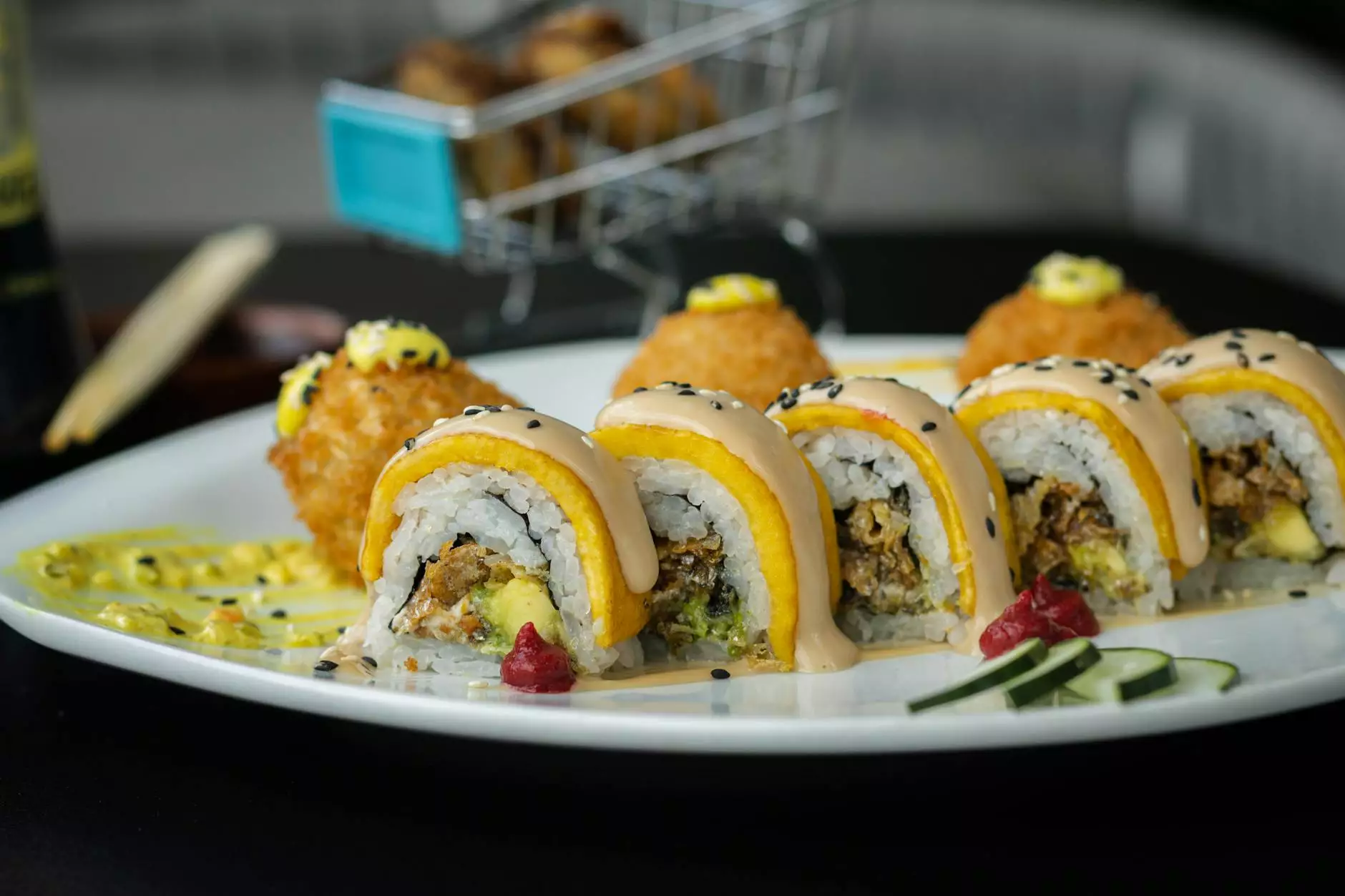Elevating Your Dining Experience with Organic Wasabi

The culinary world is continually evolving, and as we grow more conscious about our food choices, the demand for high-quality ingredients has surged. Among these, organic wasabi stands out as a superior choice for culinary establishments, especially in the realm of Japanese cuisine. This article delves into the significance of using organic wasabi in restaurants and sushi bars, highlighting its benefits and how it enhances the overall dining experience.
Understanding Organic Wasabi
For many, wasabi is merely the green paste served alongside sushi. However, true wasabi (Wasabia japonica) is far more nuanced than its common portrayals. Most of the wasabi found in supermarkets and restaurants is actually a mix of horseradish, mustard, and artificial coloring, failing to capture the authentic taste and health benefits of genuine wasabi. By utilizing organic wasabi, businesses can ensure they provide the true essence of this vital condiment.
The Benefits of Organic Wasabi
- Rich Flavor Profile: Organic wasabi boasts a subtle heat paired with a complex flavor that enhances dishes without overwhelming them.
- Health Benefits: Real wasabi is known for its anti-inflammatory and antimicrobial properties, offering advantages that artificially mixed wasabi does not.
- Sustainability: Organic farming practices ensure that the cultivation of wasabi is eco-friendly, preserving the environment while providing high-quality produce.
- Freshness: Unlike processed substitutes, organic wasabi is often freshly grated, preserving its robust flavor and potent aroma.
Incorporating Organic Wasabi in Your Menu
For restaurants and sushi bars, the incorporation of organic wasabi can be a game-changer. Here’s how to effectively integrate this premium ingredient:
Menu Highlights
Leverage the unique attributes of organic wasabi to elevate your menu. Consider the following:
- Signature Dishes: Create unique sushi rolls featuring organic wasabi to enhance flavor, such as a Wasabi Tuna Roll or Salmon Sashimi with a Wasabi Soy Dip.
- Condiments: Serve organic wasabi as a side condiment, accentuating the flavors of grilled meats or seafood with a wasabi-infused mayonnaise.
- Dressings and Marinades: Incorporate organic wasabi into dressings or marinades to provide a zesty twist that your customers will love.
Pairing Suggestions
Pairing organic wasabi with the right beverages can enhance the dining experience even more:
- Sakes: The delicate flavors of sake complement the heat and complexity of organic wasabi.
- Craft Beers: A light lager or a citrusy IPA can balance the spice of wasabi beautifully.
- Teas: Offer green tea, which pairs nicely with wasabi-flavored dishes, accentuating their freshness.
Why Choose Organic Wasabi for Your Restaurant?
The choice of using organic wasabi can have a profound impact on your restaurant's reputation and customer satisfaction. Here’s why:
Quality and Authenticity
Using organic wasabi showcases a commitment to quality and authenticity. Customers are increasingly knowledgeable about their food, seeking out places that offer genuine, quality ingredients.
Consumer Demand
As consumers become more health-conscious, they prefer organic and sustainably sourced ingredients. By offering organic wasabi, your restaurant meets this demand, potentially attracting a dedicated customer base.
Crafting Unique Culinary Experiences
Organic wasabi provides culinary professionals with an opportunity to showcase their creativity. Its versatility allows chefs to experiment with flavors, leading to unique dining experiences that distinguish a restaurant from its competitors.
Organic Wasabi's Role in Japanese Cuisine
In traditional Japanese cuisine, wasabi is not merely a condiment but an essential part of the culinary experience.
Enhancing Sushi and Sashimi
Organic wasabi is traditionally paired with sushi and sashimi, where it acts as a flavor enhancer, cutting through the richness of fish while elevating the dish’s entire profile. Unlike commercial alternatives, organic wasabi allows the natural flavors of the seafood to shine.
Regional Significance
In Japan, wasabi is traditionally grown in cool, clean mountain streams, requiring specific water conditions that make genuine wasabi a rare and valued ingredient. By sourcing organic wasabi, restaurants can take pride in contributing to the preservation of this rich agricultural tradition.
The Process of Sourcing Organic Wasabi
To ensure your organic wasabi is of the highest quality, consider the following steps when sourcing this ingredient:
Choose Reliable Suppliers
Look for trusted suppliers who specialize in organic products. They should have a track record of providing fresh, authentic ingredients.
Support Local Farmers
Whenever possible, source wasabi from local farms practicing organic cultivation. This supports local economies and reduces carbon footprints from transportation.
Conclusion: The Future of Organic Wasabi in Dining
As the culinary landscape continues to shift toward health, sustainability, and authenticity, organic wasabi is poised to play an essential role in enhancing dining experiences across restaurants and sushi bars worldwide. By prioritizing this premium ingredient, establishments can not only elevate their menu offerings but also cater to the modern consumer's demands for quality and responsibility in food sourcing.
In summary, the inclusion of organic wasabi is more than just a trend; it’s a testament to a restaurant’s commitment to excellence. Invest in quality ingredients like organic wasabi, and watch your customers return for the authentic and delicious experiences they can only find at your establishment.
Visit Our Website for More Insights
To learn more about sourcing organic wasabi and incorporating it into your culinary creations, visit realwasabi.com.







